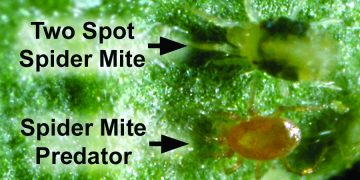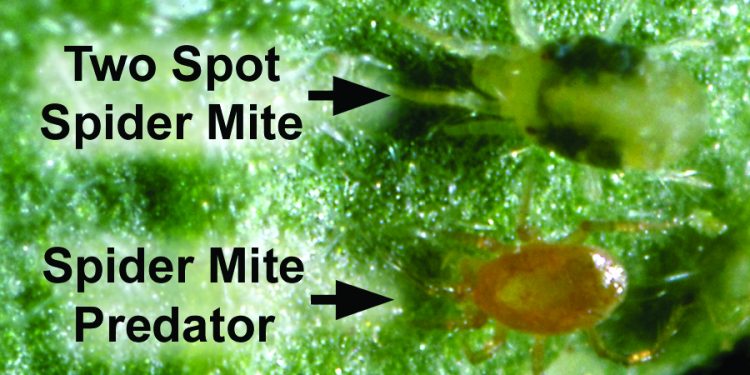Two-spotted spider mites are a common pest in agricultural production, known to damage a wide range of crops. These tiny arthropods cause significant economic losses in agriculture and can be difficult to control.
According to a recent report from the University of California Agriculture and Natural Resources, two-spotted spider mites have developed resistance to many pesticides commonly used to control them. This makes them a particularly challenging pest for farmers and agronomists to manage. Additionally, the increasing occurrence of droughts and high temperatures due to climate change creates ideal conditions for two-spotted spider mites to thrive.
One study published in the Journal of Economic Entomology found that two-spotted spider mites can cause up to 90% yield loss in cotton crops. These pests feed on the sap of plant leaves, which can reduce the plant’s ability to photosynthesize and produce healthy yields. This can have significant economic consequences for farmers and lead to food scarcity for consumers.
Controlling two-spotted spider mites can be difficult due to their high reproductive potential, ability to develop resistance to pesticides, and ability to rapidly adapt to changing environmental conditions. However, integrated pest management strategies, such as crop rotation, biological control, and the use of resistant plant varieties, can help reduce the impact of two-spotted spider mites on agricultural production.
In conclusion, two-spotted spider mites are a significant threat to agricultural production, causing significant economic losses and food scarcity. The development of resistance to pesticides and the increasing impact of climate change make them a particularly challenging pest to control. It is essential for farmers and agronomists to adopt integrated pest management strategies to reduce the impact of two-spotted spider mites on crop yields and ensure sustainable agriculture.
#TwoSpottedSpiderMite #AgriculturalPest #IntegratedPestManagement #CropYieldLoss #ClimateChange #SustainableAgriculture































